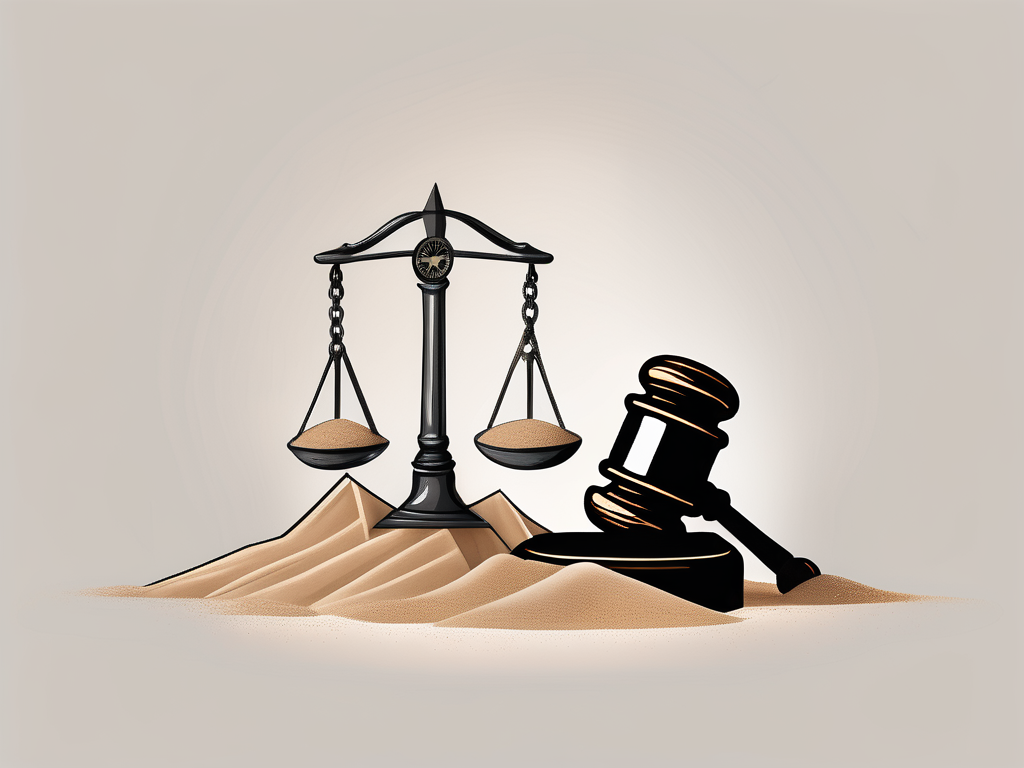Filing a personal injury lawsuit involves understanding the concept of the statute of limitations and the associated time limits. This article provides an overview of personal injury lawsuits, emphasizing the importance of timely filing and the consequences of missing deadlines. It also explores the role of a personal injury lawyer and how they can assist in meeting these critical timelines. Luckily, The Ticktin Law Group specializes in the complexities of personal injury law and is here to help through this process.
Understanding Personal Injury Lawsuits
Before exploring the timeline for filing a personal injury lawsuit, it’s crucial to comprehend the nature of a personal injury case. Legally, personal injury involves any harm suffered by an individual due to the negligence, carelessness, or intentional acts of another party. This harm can manifest physically, emotionally, or psychologically and may arise from incidents like car accidents, workplace mishaps, medical malpractice, or slip and fall accidents.
Definition of Personal Injury
Personal injury is a comprehensive legal concept that covers a diverse array of incidents leading to harm. It involves injuries stemming from the actions or negligence of others, such as negligent drivers, property owners lacking responsibility, or healthcare professionals failing to provide adequate care. Fundamentally, personal injury cases strive to hold those accountable for their actions and pursue compensation for the ensuing damages.
Common Types of Personal Injury Cases
Personal injury cases can arise from various scenarios. Some common examples include:
- Car accidents
- Medical malpractice
- Slip and fall accidents
- Workplace injuries
- Product liability
Take a closer look at each of these types of personal injury cases:
- Car accidents: Car accidents frequently lead to personal injury cases, causing severe harm like broken bones, spinal cord injuries, or traumatic brain injuries. The negligent driver responsible for the accident may be held accountable for the victim’s medical expenses, lost wages, and pain and suffering.
- Medical malpractice: Medical malpractice transpires when a healthcare professional neglects to meet the standard of care expected in their field, leading to harm to the patient. Instances encompass misdiagnosis, surgical errors, medication mistakes, or birth injuries. Those affected by medical malpractice may seek compensation for medical expenses, ongoing treatment, and enduring effects of the negligence.
- Slip and fall accidents: Slip and fall accidents can occur in various settings, from grocery stores to private residences. Often caused by hazardous conditions like wet floors, uneven surfaces, or inadequate lighting, property owners or occupants may be deemed responsible for injuries resulting from a slip and fall accident if they neglect to maintain a safe environment.
- Workplace injuries: Workplace injuries vary from minor accidents to life-altering incidents and can happen in any industry. These injuries may stem from unsafe working conditions, insufficient training, or defective equipment. Injured workers may qualify for workers’ compensation benefits, offering coverage for medical expenses and wage replacement throughout their recovery.
- Product liability: Product liability cases emerge when a defective or unsafe product leads to harm for a consumer. This can involve faulty machinery, contaminated food or drugs, or insufficient warning labels. Manufacturers, distributors, or retailers may be deemed responsible for any injuries or damages resulting from their products.
These are just a few examples of the common types of personal injury cases. It’s important to note that each case is unique, and the specific circumstances surrounding the incident will determine the legal options available to the injured party. If you believe you have a personal injury claim, consulting with an experienced attorney can help you understand your rights and navigate the legal process.
The Concept of Statute of Limitations
Now that we have a basic understanding of personal injury lawsuits, let’s explore the concept of the statute of limitations and its significance.
What is a Statute of Limitations?
A statute of limitations is a law that sets a specific time limit for filing a lawsuit after the occurrence of a particular event. In the context of personal injury cases, it refers to the timeframe within which a victim must initiate legal action against the responsible party or parties.
Factors Influencing the Statute of Limitations
The statute of limitations varies based on factors such as jurisdiction and the specific personal injury case. Each state has its own statutes that delineate time limits for various types of lawsuits. Consequently, it is crucial to refer to the laws specific to your jurisdiction and case to ascertain the applicable deadline.
In the realm of personal injury cases, the statute of limitations is a weighty matter. It functions as a safeguard to protect the rights of both the plaintiff and the defendant. By instituting a time limit, the statute of limitations ensures that lawsuits are initiated within a reasonable period after the incident, thus preventing stale claims and upholding the integrity of the legal process.
Moreover, the statute of limitations considers the practical challenges that may arise in gathering evidence and securing witnesses as time elapses. Memories fade, documents can be misplaced, and witnesses may become unavailable. By establishing a deadline, the statute of limitations promotes prompt action, fostering fairness and efficiency in the resolution of personal injury cases.
Time Limits for Filing Personal Injury Lawsuits
When initiating a personal injury lawsuit, having a clear understanding of the associated time limits is paramount. Let’s delve into the specific timeframe for filing and explore some essential details you should be aware of.
General Time Frame for Filing
In general, the statute of limitations for personal injury claims falls within the range of one to four years. However, it’s crucial to recognize that this timeframe can vary based on the jurisdiction and the nature of your case.
Now, you might be curious about when the clock begins ticking. Typically, it starts from the date of the accident or the discovery of the injury. Taking prompt action and filing your claim within the designated timeframe is essential to safeguard your legal rights.
You might wonder, why the time limit? These limitations serve the purpose of ensuring that cases are brought to court while evidence is still fresh, and witnesses’ memories remain reliable. Failure to file within the stipulated time frame may result in the forfeiture of your legal right to seek compensation.
Exceptions to the Rule
While general time limits exist, numerous exceptions allow for the extension or suspension of the filing deadline under specific circumstances.
For example, if the injured party is a minor at the time of the incident, the statute of limitations may be tolled until they reach adulthood. This acknowledges that minors may lack the legal capacity to pursue a claim independently and allows them to seek compensation when they attain the age of majority.
In cases involving latent injuries that surface years after the event, the time frame for filing may differ. Such injuries can be challenging, as they may not immediately manifest but rather take time to develop. The law recognizes this and provides a reasonable opportunity for individuals to bring a claim when they become aware of their injury.
It’s important to note that exceptions to the statute of limitations are contingent on the specific circumstances of each case and the laws of the jurisdiction where the claim is filed. Therefore, consulting with an experienced personal injury attorney is crucial. They can guide you through the legal process and ensure you don’t miss any critical deadlines.
Remember, time is of the essence when filing a personal injury lawsuit. By comprehending the general time frame and any applicable exceptions, you can take the necessary steps to protect your rights and pursue the compensation you rightfully deserve.
Consequences of Missing the Filing Deadline
Missing the filing deadline in a personal injury lawsuit can lead to substantial legal and financial repercussions. It’s crucial to delve into the potential ramifications of such a mistake.
One of the most critical legal implications is the defense of the statute of limitations that the responsible party can raise. This defense contends that too much time has passed since the incident, making it inappropriate for the injured party to pursue legal action. If the court agrees with this defense, your case may be dismissed, leaving you without a legal avenue to seek compensation for your damages. Therefore, it’s vital to understand the applicable time limits and take prompt action to protect your legal rights.
The consequences of missing the filing deadline, however, extend beyond the legal realm. They can significantly impact the compensation you may be entitled to receive. Personal injury claims often involve various damages, including medical expenses, lost wages, pain and suffering, and other losses. By surpassing the filing deadline, you forfeit the opportunity to seek compensation for these injuries and losses. The denial of your claim due to the expiration of the statute of limitations can result in the loss of your rightful compensation, leaving you to bear the financial burden alone.
Seeking Legal Advice for Personal Injury Lawsuits
Given the complexities surrounding personal injury lawsuits and the importance of meeting filing deadlines, it’s highly advisable to seek the assistance of a personal injury lawyer.
Role of a Personal Injury Lawyer
Engaging a personal injury lawyer is essential, as they specialize in handling cases like yours and possess the knowledge and experience necessary to navigate the legal process effectively. Their role encompasses evaluating the merits of your claim, gathering crucial evidence, negotiating with insurance companies, and, if required, representing your interests in court. Importantly, they play a pivotal role in ensuring that you meet all necessary deadlines, safeguarding your rights to pursue rightful compensation. By having a skilled attorney by your side, you enhance your chances of a favorable outcome and alleviate the complexities associated with personal injury litigation.
How a Lawyer Can Help Meet Deadlines
Personal injury lawyers are familiar with the applicable statute of limitations for various types of cases and can ensure you stay within the prescribed time frame. They will be proactive in gathering evidence, consulting with experts, and filing the necessary documents promptly. By having a dedicated legal professional by your side, you can have peace of mind knowing that your lawsuit is being handled diligently and with your best interests at heart.
A personal injury lawyer can provide valuable guidance and support throughout the entire legal process. They understand the emotional and physical toll that a personal injury can have on your life, and they are there to offer compassion and reassurance during this challenging time.
Furthermore, a skilled personal injury lawyer will have a vast network of resources at their disposal. They can connect you with medical professionals who specialize in treating your specific injuries, ensuring that you receive the best possible care and treatment. They can also recommend reputable rehabilitation centers and therapists to aid in your recovery.
Moreover, a personal injury lawyer will thoroughly investigate your case to uncover any potential sources of compensation. They will explore all avenues, including identifying liable parties who may be responsible for your injuries. This comprehensive approach ensures that you have the best chance of recovering the full and fair compensation you deserve.
Seeking legal advice from a personal injury lawyer is crucial in personal injury lawsuits. Their expertise, support, and dedication to meeting deadlines will not only protect your rights but also increase your chances of obtaining the compensation you need to move forward with your life. Don’t navigate the complex legal system alone; consult with a personal injury lawyer today.
Conclusion
Filing a personal injury lawsuit necessitates a comprehensive understanding of the statute of limitations and the critical importance of timely action. By acquainting yourself with the specific time limits applicable to your jurisdiction and seeking the guidance of a personal injury lawyer, you can ensure the protection of your legal rights and enhance your chances of securing the compensation you rightfully deserve. Time is of the essence, so it’s imperative not to delay in seeking legal advice if you believe you have a personal injury claim.
For those facing the challenges of a personal injury with the clock ticking on their ability to file a lawsuit, The Ticktin Law Group is here to offer assistance. Our attorneys in Deerfield Beach, Florida, bring forth the experience and creativity needed to tailor solutions to your unique situation. Committed to providing affordable legal representation, we prioritize giving your concerns the attention they deserve. Don’t allow time to run out on your claim—reach out to us for help. Contact us today to ensure your rights are protected and to discuss the compensation you may be entitled to.





